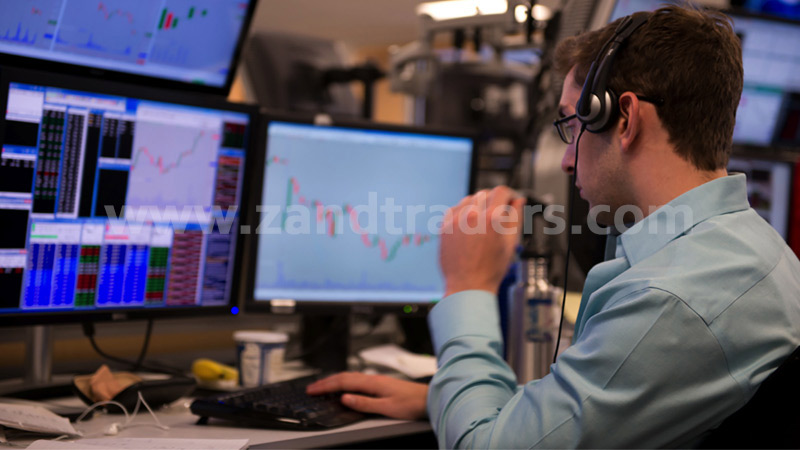what is prop trading?

what is prop trading?
These services are currently only available for non-Iranian customers and top ZandTrades students. Please do not enroll in these challenges otherwise; Zand Traders will not have any responsibility or support regarding your registration and this article is only to acquaint Iranians with one of the most reputable investment companies in the world. Familiarity with big and reputable brands will make you aware of the level of global standards, so you will not risk your capital in the future.
One up Trader is a trading platform that has designed a challenge in the form of a prop form for those who are interested in trading so that they can start trading with a demo account first, and if successfully pass the rules and also when they have the necessary preparations, one up trader offers them a fund as a reward by allowing them to trade with a real account.
Of course, it should be noted that in all these cases, conditions and rules are considered for traders that need to comply with them; otherwise they will be prevented from trading on the fund account.
In fact, one up trader is a privately held hiring company that facilitates appraisal programs for traders seeking to raise capital. The company is headquartered in Wilmington, USA and has more than five years of experience.
The plan of this company is to help motivated people like you to become traders with significant capital by following a simple and transparent evaluation process in achieving financial and professional independence.
Since its inception, the One up Trader team has been able to successfully add thousands of traders to its team with the help of its financing partners, and is constantly expanding its reach.
One up Trader believes that it offers more value to traders than the cost it receives. Try One up Trader and register with a free trial account so you can experience everything up close.
In this article, we tried to introduce you to another prop trader that has been very successful and we hope you find the content useful.
Zand Traders have included the purchase of an account for its top students as part of its work plan, and if you are of one of them, you can take advantage of this great opportunity.

What is proprietary trading?
Many investors assume that the volume of stock market transactions is related to personal investors and retailers. Of course, this idea is not far from the truth, but in addition to retail investors, several institutions, companies and organizations also participate in stock market activities on a daily basis. Proprietary trading is a type of transaction that depends on the same companies and institutions and is related to investment management.
Follow Zand Traders to learn more about these types of trades and exclusive traders.
Introduction to proprietary trading
When a financial services company, such as a brokerage, an investment bank, or even a commercial bank, operates and invests in the stock market, this activity is known as proprietary trading.
Stock market experts also informally refer to this type of activity as “proprietary trading”. The funds that these companies use to trade or invest in the stock market belong to them and not to their customers.
Prop Trading occurs when a bank or company trades stocks, derivatives, bonds, commodities, or other financial instruments in its account and uses its own money instead of customers’ money. This enables the company to make a full profit from a transaction instead of the commission it receives from customers for processing transactions.
What is Prop Trading?
Banks and other financial institutions are turning to this type of business in order to make more profit. Such companies are often superior to average investors in terms of market information. These companies also benefit from complex modeling and trading software.
Prop traders use a variety of strategies such as merger arbitrage, index arbitrage, global macro trading and volatility arbitrage to maximize trading returns. In proprietary trading, traders have access to complex software and specific datasets that help them make critical decisions.
Why do financial institutions enter into proprietary trading?
The answer to this question is quite clear. Financial institutions engage in transactions solely for the personal benefit of their company, and this is due to the hard competition that financial companies and stockbrokers face. Of course, these companies use small margins on their products and services.
In addition, because the revenue from their core business activities may not be enough to support them in the long run, they use prop trading to profit from trading and investing in the stock market. They then use the revenue from their company in the market to maintain their business and advance their goals.
But is this all about prop trading? Actually not, follow us to introduce you this concept in more detail.
What exactly is prop trading?
prop trading exactly means that traders invest in the stock market with the money and capital of other groups, while they have no access to capital and only share in the profits.
In fact, an investor puts a large amount of money in the broker and trades through that broker. Other people in small groups can also participate in proprietary trading with the help of this large group and make bigger profits.
The final word
Consequently in proprietary trading companies support transactions through their own funds, they can take a higher level of risk because they do not need to be accountable to their customers. In fact, their gains or losses are only for their own business, and this is one of the most important reasons why tra

